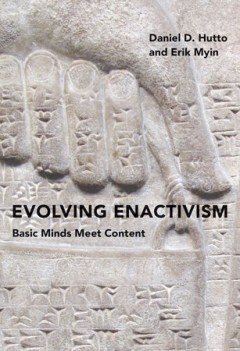Filter by

AI in Learning: Designing the Future
AI (Artificial Intelligence) is predicted to radically change teaching and learning in both schools and industry causing radical disruption of work. AI can support well-being initiatives and lifelong learning but educational institutions and companies need to take the changing technology into account. Moving towards AI supported by digital tools requires a dramatic shift in the concept of learn…
- Edition
- 1
- ISBN/ISSN
- 978-3-031-09687-7
- Collation
- -
- Series Title
- -
- Call Number
- XXV, 344

Handbook of Positive Psychology, Religion, and Spirituality
This handbook aims to bridge the gap between the fields of positive psychology and the psychology of religion and spirituality. It is the authoritative guide to the intersections among religion, spirituality, and positive psychology and includes the following sections: (1) historical and theoretical considerations, (2) methodological considerations, (3) cultural considerations, (4) developmenta…
- Edition
- 1
- ISBN/ISSN
- 978-3-031-10274-5
- Collation
- -
- Series Title
- -
- Call Number
- XXIV, 513

Wertschöpfung hybrid gestalten
In diesem Open-Access-Buch ist die Digitalisierung von Geschäftsmodellen anhand von Praxisbeispielen beschrieben. Dies umfasst einerseits die Entwicklung digitaler bzw. hybrider Geschäftsmodelle und andererseits die Gestaltung des Umsetzungsprozesses im Unternehmen. Dazu zählen Veränderungen an Strukturen der Aufbau- und Ablauforganisation ebenso wie an Zusammenarbeit, Führung und Kompeten…
- Edition
- 1
- ISBN/ISSN
- 978-3-662-65130-8
- Collation
- -
- Series Title
- ifaa-Edition
- Call Number
- XV, 232

Dialogue for Intercultural Understanding: Placing Cultural Literacy at the He…
This open access book is a result of an extensive, ambitious and wide-ranging pan-European project focusing on the development of children and young people’s cultural literacy and what it means to be European in the 21st century prioritising intercultural dialogue and mutual understanding. The Horizon 2020 funded, 3-year DIalogue and Argumentation for cultural Literacy Learning (DIALLS) proje…
- Edition
- -
- ISBN/ISSN
- 978-3-030-71778-0
- Collation
- -
- Series Title
- -
- Call Number
- -

Doing Indefinite Time
This open access book provides insights into the everyday lives of long-term prisoners in Switzerland who are labelled as ‘dangerous’ and are preventatively held in indefinite, probably lifelong, incarceration. It explores prisoners’ manifold ways of inhabiting the prison which can be used to challenge well established notions about the experience of imprisonment, such as ‘adaptation’…
- Edition
- 1
- ISBN/ISSN
- 978-3-031-12590-4
- Collation
- -
- Series Title
- Palgrave Studies in Prisons and Penology
- Call Number
- XIII, 353

Foundations of Robotics
This open access book introduces key concepts in robotics in an easy to understand language using an engaging project-based approach. It covers contemporary topics in robotics, providing an accessible entry point to fundamentals in all the major domains. A section is dedicated to introducing programming concepts using Python, which has become a language of choice in robotics and AI. The book al…
- Edition
- 1
- ISBN/ISSN
- 978-981-19-1983-1
- Collation
- -
- Series Title
- -
- Call Number
- XXI, 543

'The Bell Curve' in Perspective
This open access book examines the implications of The Bell Curve for the social, economic, and political developments of the early 21st century. Following a review of the reception of The Bell Curve and its place in the campaign to end affirmative action, Professor Tucker analyses Herrnstein’s concept of the “meritocracy” in relation to earlier 20th century eugenics and the dramatic incr…
- Edition
- -
- ISBN/ISSN
- 978-3-031-41614-9
- Collation
- XIII, 124
- Series Title
- -
- Call Number
- -

Cognitive choice modeling
"This book presents a comprehensive review of the emerging theories from cognitive science that integrate both decision processes and choice behavior"--OCLC-licensed vendor bibliographic record.
- Edition
- -
- ISBN/ISSN
- 0262361663
- Collation
- 1 online resource.
- Series Title
- -
- Call Number
- -

Evolving enactivism :basic minds meet content
Evolving Enactivism" argues that cognitive phenomena - perceiving, imagining, remembering -- can be best explained in terms of an interface between contentless and content-involving forms of cognition. Building on their earlier book Radicalizing Enactivism, which proposes that there can be forms of cognition without content, Daniel Hutto and Erik Myin demonstrate the unique explanatory advantag…
- Edition
- -
- ISBN/ISSN
- 9780262339773
- Collation
- 1 online resource (xxvi, 328 pages).
- Series Title
- -
- Call Number
- -

Mood and mobility :navigating the emotional spaces of digital social networks
We are active with our mobile devices; we play games, watch films, listen to music, check social media, and tap screens and keyboards while we are on the move. In Mood and Mobility, Richard Coyne argues that not only do we communicate, process information, and entertain ourselves through devices and social media; we also receive, modify, intensify, and transmit moods. Designers, practitioners, …
- Edition
- -
- ISBN/ISSN
- 9780262330893
- Collation
- 1 online resource (x, 378 pages)
- Series Title
- -
- Call Number
- -
 Computer Science, Information & General Works
Computer Science, Information & General Works  Philosophy & Psychology
Philosophy & Psychology  Religion
Religion  Social Sciences
Social Sciences  Language
Language  Pure Science
Pure Science  Applied Sciences
Applied Sciences  Art & Recreation
Art & Recreation  Literature
Literature  History & Geography
History & Geography